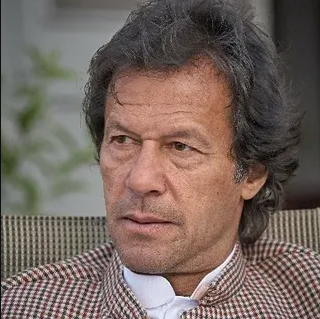 Is this the beginning or end of a political crisis? “Khan was unable to confront this situation even when he still had a good deal of governmental resources and power in his hand and didn’t take the required political decisions that could have thwarted this opposition plot to remove him.”
Is this the beginning or end of a political crisis? “Khan was unable to confront this situation even when he still had a good deal of governmental resources and power in his hand and didn’t take the required political decisions that could have thwarted this opposition plot to remove him.”
The political crisis gripping Pakistan for the last month finally ended with the removal of Imran Khan as the country’s Prime Minister and the subsequent election of Shahbaz Sharif, the candidate of the country’s opposition parties. The final act of this political theatre was as interesting, and intriguing as were the previous ones and laid further bare the real intentions of the players involved.
The political saga involving Imran Khan, the opposition and the country’s powerful military started to take a decisive shape when in October 2021 the Chief of Army Staff General Qamar Javed Bajwa tried to remove the country’s powerful spy chief – also an army officer – and faced resistance from the office of the Prime Minister. Eventually, the transfer of the intelligence chief, who had by that time virtually become Khan’s eyes and ears was approved by the Prime Minister, but it widened the gulf of distrust between Khan and the army chief.
October 2021 the Chief of Army Staff General Qamar Javed Bajwa tried to remove the country’s powerful spy chief – also an army officer – and faced resistance from the office of the Prime Minister. Eventually, the transfer of the intelligence chief, who had by that time virtually become Khan’s eyes and ears was approved by the Prime Minister, but it widened the gulf of distrust between Khan and the army chief.
This invariably led to the opening of blocked political alleyways for the country’s opposition who managed to sway the loyalties of more than a dozen Members of Parliament from Khan’s party. Yet, Khan was unable to confront this situation even when he still had a good deal of governmental resources and power in his hand and didn’t take the required political decisions that could have thwarted this opposition plot to remove him. Ultimately, he did offer concessions to his political allies, but by that time it had become politically too late.
However, Khan did manage to politically utilize an alleged ‘cypher’ sent home by the Pakistani ambassador to the United States that claimed the US wanted the removal of Khan’s government and there would be consequences for Pakistan if he stayed in power. This helped Khan to propagate and normalize a discourse at least within his own voting base that he was the victim of a US-backed political conspiracy. Khan’s anti-western populist rhetoric alongside allegations of US involvement further complicated ties between the Prime Minister and the country’s military chief, who had attempted to offer a fig leaf to the US and enact a rapprochement in the bilateral relationship, even if it impacted Pakistan’s ties with China. These attempts by the country’s army chief were patterned on the politicking practised by Egyptian President Anwar Sadat when he took a strategic shift and realigned Egypt towards the US.
Eventually, Khan’s stay in power became untenable owing to him losing the majority in Parliament. Khan’s legal aides tried to manipulate the constitutional clauses and denied opposition voting on the no-confidence motion, but the devastating intervention by the Supreme Court in favour of the opposition ended all chances of the government’s survival. As Khan himself remarked to a group of journalists, this practice had allayed all political and institutional power holders against him, thus leaving him no option but to resign. Though Khan didn’t resign and was voted out by the parliament.
The political and institutional stakeholders that had joined forces to remove Khan’s government are successful, but will this new regime be able to translate these political gains inside the parliament into broader political stability across the country? The political response by Khan and his support base to his ouster suggests otherwise. Many of Khan’s party members, who constituted more than a third of Parliament, have resigned and his followers have turned out in large numbers across the length and breadth of Pakistan, and internationally, to protest his unceremonious departure. Furthermore, the composition of this posse which worked alongside each other against Khan also blows away the claims of civilian supremacy often harped by Pakistan’s opposition, thus robbing any notion of moral high ground to these political manoeuvres.
This means the environment of political confrontation and polarisation that has characterised Pakistan’s politics now for years will not be abating, and political stability will remain elusive. With Khan’s base rallying around him and having nothing to lose anymore, his staunch opposition will make governance difficult for the new government and thus start a new political crisis.
Written by: Umer Karim, doctoral researcher – School of Government, University of Birmingham.
Imran Khan’s ouster from power in Pakistan

















